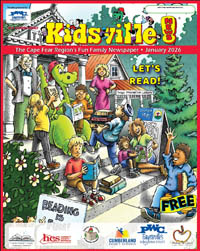Mixing Family and Politics
- Details
More than two decades ago when Geraldine Ferraro became the first woman nominated for vice president on the Democratic ticket, and more recently when Hillary Clinton came close to getting the Democratic nod for president, mothering was not much of a political issue. Both women are mothers, of course, but by the time they ran, their children were out of the nest, making hands-on mothering less of a daily responsibility. In Palin’s case, however, her family of five children is young. Only one of her children is over 18, and the youngest is a special-needs infant. Her young family has ignited a debate over whether a mother in such circumstances can, or perhaps should, become vice president of the United States, only one breath away from the presidency. It is an uncomfortable debate for many of us, including a legion of working mothers.
{mosimage}Most American mothers are employed outside their homes today for many reasons, usually to support their families. It is a tough road, though, and many a working mother will confess to struggling to balance family needs and responsibilities with those of her job, no matter what that job may be. When I was a young working mother, I often felt at the end of a long day that I had not done either of my jobs — the one in the office and the one at home — as well as I could or should. Other mothers have told me they felt the same way.
There is no “answer” to this issue, of course, and the issue itself is different for every mother and for every working and family situation. It is, however, a conversation we should be having as a nation about the nature of work and family in our new century. As the conversation unfolds, it has been interesting to me to note, most unscientifically, that younger mothers both in the media and in personal conversations seem to feel that, yes, mothers can, should and are effective both in the workplace and in their family circles. Older mothers who are nearing or have completed the intense phase of motherhood are not so sure.
This may be merely a generational divide, but this working mother is glad we are talking about it.
Another reality Palin’s young family has dropped on America’s doorstep is teenage pregnancy and all its associated issues and complications.
Age-old conversations are being rekindled about a situation that occurs in many families, not always with positive outcomes. We all know that early motherhood is a strain on young parents, most often the mother. If she marries her child’s father, as Sarah Palin’s daughter says she plans to do, both mother and child are generally better off emotionally, physically and financially than if she does not, even though more young marriages end in divorce than marriages between older, more mature partners. What are the roles of the parents of the soon-to-be teenage parents in situations like this? Is the abstinence-only sex education curriculum mandated in most public schools, including those in North Carolina, adequate to prevent teenage pregnancy and all its many and varied complications, or should we provide our young people with factual information as well as moral directives?
Early parenthood can be successful, and we all know instances when it has been. We all know, too, that many times it shortchanges and compromises the futures of both the young parents and their children by limiting educational options and lowering earning potential.
I have to smile to myself about how my grandparents, born at the end of the 19th century and whose lives spanned the first 75 years of the 20th century, would marvel at all the “firsts” of this presidential cycle. The first bi-racial presidential candidate. The first woman who was almost a presidential candidate and the second woman who is a vice-presidential candidate. The first presidential candidate to acknowledge that he cheated on his first wife and married his second shortly thereafter, and now a publicly pregnant teenage child of a vice-presidential candidate.
I doubt my grandparents could have imagined all these sweeping social changes in less than a quarter century.
None of us have magic solutions to balance work and family in the infinite situations dealing with it, and none of us can completely prevent unplanned pregnancies among young people who are really children themselves. None of us can predict with certainty who is going to be our next president and vice president either.
Whatever the future holds for Alaskan Governor Sarah Palin, her stunning arrival on the American political stage is generating long overdue conversations about issues we have ignored for a long time.
That, in itself, has got to be positive.

 How to resolve AdBlock issue?
How to resolve AdBlock issue? 








